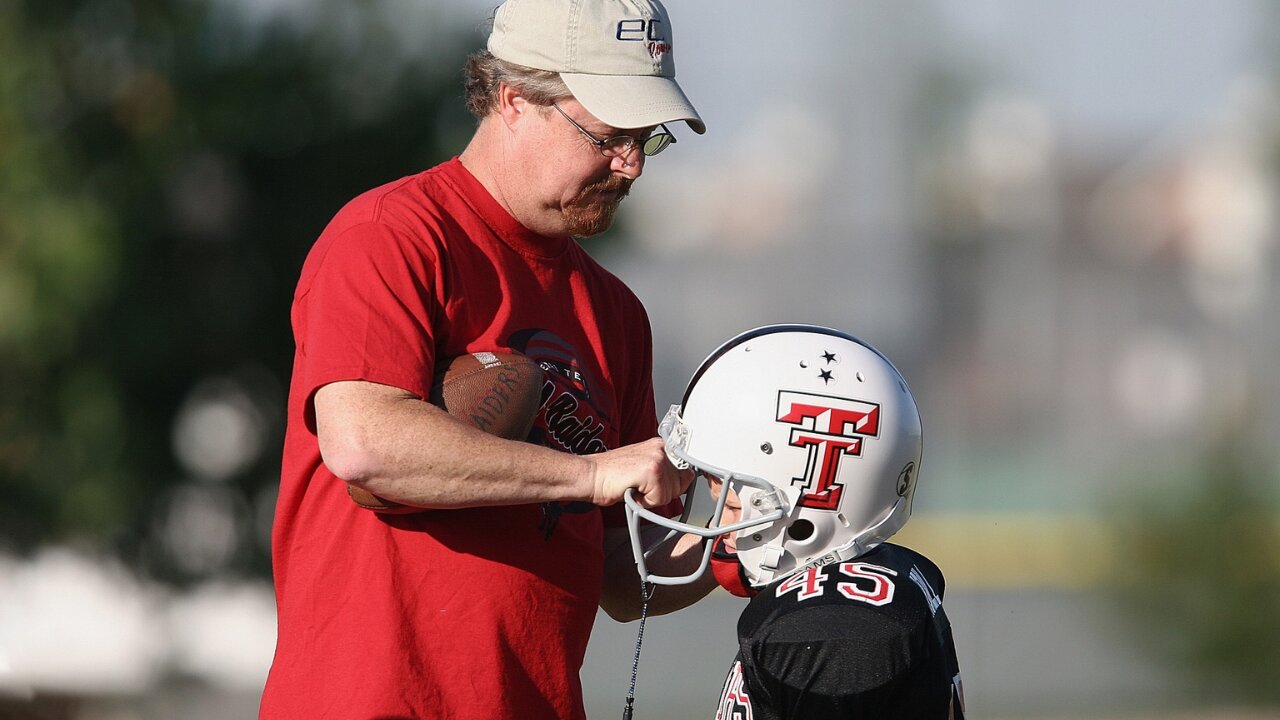Why Having a Life Coach is Crucial for Adulting

Contents
- The present is what interested me, not the past.
- After years of working with this specific group of women, I’m absolutely convinced that coaching is crucial for your twenties. Here’s why:
I’ll be honest: the first time I heard the term “life coach” – I didn’t really know what to think.
I was 22 years old, fresh out of college, and absolutely giddy about my new graduate school program. About a week into classes, a group of used some of our free discussion time to talk our future goals in the counseling profession.
Some wanted to go into private practice. Others, an agency. The brave ones were gearing up to work in hospitals. As we were buzzing with excitement over the next chapter of our lives, one girl timidly admitted that she was interested in exploring life coaching.
Silence. Eye rolls. Hushed giggles. Yikes.
I was shocked – not only at her brave admission, but also at the hostile reaction.
But that quickly changed. As a trained counselor, it’s hard to imagine wanting to stray from the profession. Counseling is so deeply ingrained into our souls that the thought of doing something “less than” sounded insane. It takes a lot to become a trained counselor. So why would anyone settle for being Jello when you clearly worked your ass off to become crème brulee?
Spoiler alert: I had a change of heart. (And I’m still crème brulee, dammit.)
After leaving my graduate program and working with children, adults, and couples…I felt like something was missing. Not from the counseling profession necessarily…but from my work. I wanted to be more hands on. I wanted to speak my mind. I wanted to have a collaborative relationship. And I wanted to talk about everyday, real-life events that greatly impact our future.
The present is what interested me, not the past.
Coaching is what finally allowed me to reach my authentic self while helping others reach that same level of authenticity. And you just can’t beat that.
But if I was going to pursue a hands-on method of working, then I wanted a population who would respond to that kind of approach. And who better than women in their twenties?
As twenty-somethings females, we are perfectly ripe for coaching. We have questions, we want answers – and we wanted them yesterday. We have dreams, goals, optimism, and a ton of pressure to figure it all out immediately.
After years of working with this specific group of women, I’m absolutely convinced that coaching is crucial for your twenties. Here’s why:
1. These are the years when we make the majority of our life decisions.
We choose careers. We choose life partners. We choose where to live. We choose to move out of our parents’ house and rescue pets and learn how to cook for ourselves and decide how to spend our money and how to save our money. And all of these seemingly small but significant choices impact the direction for the rest of our life. It’s crazy!
The next 60 years could totally bank off of decisions we made when we were 23, 27, or 32 years old. I don’t know about you, but that scares me. At the age of 23, I was emotionally raw from a terrible breakup, living at home, and apparently secretly judging people for wanting to be life coaches (oh the irony).
Let’s just say I could have saved myself a ton of stress, confusion, and anxiety if I had someone else in my corner.
Listening to our parents, friends, boyfriends, girlfriends, teachers, or family is great – but it’s not the same as having an objective source guiding you throughout this crazy transition. Life coaches are meant to only have your best interest at heart while helping you actively decide which steps to take to reach your goal. Friends and family definitely want what’s best for you – but it’s difficult to achieve a certain level of objectivity when you’re so “in it.”
Life coaches are trained for this. Our job is to help you make the right decisions for yourself so you set yourself up for a successful and prosperous future. So it’s best to utilize them when it counts.
2. There are many false stereotypes about the importance of these years.
Not to repeat myself or spike any of your anxiety – but I am just going to reemphasize, this is an important decade. And for some reason, a lot of us are in denial about that.
I’m sure a lot of you have listened to Meg Jay’s Ted Talk 20 is not 30. It’s amazing. Brilliant. Frightening. And it nails exactly what a lot of us coaches have been thinking for a while.
As millennials, we like to push boundaries. We’re changing the rules. We are putting things off and reprioritizing our values. A lot of it is awesome. I’m damn proud to be a millennial. But some of it can be damaging to our futures.
Yes, I understand traveling for a bit in order to find yourself before officially becoming an adult. I am down with foregoing a mortgage to pay off student loans. But I’m not down with pure denial of the fact that these years as a young adult counts. It’s not a wash. It’s not a freebie. It doesn’t matter if we’re living longer – our young adult years are still the foundation of our lives. I’m not sure what started this trend, but this time still has to be taken seriously and working with a coach all but guarantees that.
3. This is the biggest time of isolating transition.
Ah, college. So much fun. I lived in the sorority house junior and senior year (don’t judge me) and constantly had things to do. If I needed to study, so did a friend. If I wanted a quiet night in, so did a friend. If I wanted to paint the town, so did a friend. And if I needed to talk something out, so did a friend. There was always someone around on my same wavelength, and I began to get pretty comfortable with that idea.
And then I graduated.
Sooooo apparently that’s not the way the normal world works. I spent a lot of my early adult years feeling like I was the only one experiencing certain funks or feelings. I moved cities. My friends got jobs elsewhere. Some got married right away and transitioned into adulthood seamlessly (or at least it appeared that way). And I felt really alone.
Transitioning into adulthood typically isn’t a very social endeavor – in fact – it’s usually the opposite. It’s isolating and scary and intimidating. Of course I kept in touch with my closest friends and I will always feel close to them – but our time together is so limited that you don’t want to spend it venting or complaining or brainstorming. You want to spend it catching up and remaining positive. This doesn’t really change no matter how different our lives become.
But you don’t have to be alone in this. Working with a life coach during this time and beyond is so crucial. You’re allowed to process your feelings, work on actionable items to help you feel more connected, hear a different perspective about all of life’s challenges, and feel understood, validated, and normalized. And that can make all the difference as you continue to forge your own path.
4. It’s normal for pressure to increase.
It’s almost like entering into adulthood is synonymous with entering into a pressure cooker. The heat is seriously on.
When we were teenagers, it felt like nothing really counted. Sure, it was important to make good grades so you could get into school. Once you got into college, it was important to get involved and network and study. But honestly, we didn’t think that anything we did during those years would impact the rest of our lives forever. We relied on the comforting idea that time was on our side. We always had room to make up for any previous mistakes.
But now, especially with the realization that these adulting years DEFINITELY COUNT, everything feels infinitely important.
If we haven’t landed “the” job, we panic. If we haven’t found “the” one, we worry. If we don’t make “the” salary, we freak. It’s so much more pressure than making an A- on a Chemistry final. But who is going to take us seriously?
Our friends are going through the exact same thing but no one wants to admit their life isn’t turning out exactly as they hoped it would. We could talk to our parents but when they were our age they were already married with a steady job and a baby on the way. So we keep it to ourselves, and let the pressure keep building.
Don’t do that to yourself. Coaching relieves the pressure that you’re feeling, because by working with someone else, you get to share the pressure. Someone else can carry some of the load for you so you can focus on more important things. And together, you can figure out the answers to a less stressful life.
5. Comparison spikes.
With all this pressure rising to the surface, it’s only normal to look to your left and right to see how your peers are handling it. We figure maybe everyone else is struggling, too, and it might make us feel better. Or hell, maybe we can learn something. But typically what happens is we can’t detect the signs that others are suffering, and we assume everyone else is sailing freely into adulthood. So, in actuality, our defense mechanism of comparing only makes us feel worse.
Ugh.
Luckily, life coaches keep you on track. They don’t let you get distracted by your assumptions that everyone else is rocking it except for you. Instead, they help remind you that you are confident enough to figure out what to do next. You’ve got the answers. You just need the right environment and the right catalyst to discover it. And that is exactly what a life coach is for.
I am sure there are plenty more reasons why life coaching is crucial for adulting, but these just happen to be my favorites. Overall I think it’s always important to have a buddy to help you navigate through life. We all need a cheerleader and a confidante during crazy times – and I just happen to think our early adult years are just about the craziest. Wouldn’t you agree?
We Want to Hear From You!
What resonated most with you from this article? Share your thoughts in the comments below!
Frequently Asked Questions
What is the difference between a life coach and a counselor?
This is such a common question! While counseling often focuses on healing the past and managing mental health diagnoses, life coaching is typically more future-focused. A coach helps you identify where you are now, where you want to be, and creates an actionable roadmap to bridge that gap. Think of counseling as healing the root, and coaching as growing the fruit!
Is life coaching worth the investment in my 20s?
Absolutely, babe. Your twenties are your foundation years. Investing in yourself now-learning how to make decisions, handle pressure, and navigate transitions-pays dividends for the rest of your life. It's like compound interest for your personal growth.
How do I know if I need a life coach?
If you feel "stuck," overwhelmed by choices, or like you're just drifting through your twenties without a clear direction, a coach can be a game-changer. It's also perfect if you have specific goals (career, relationship, lifestyle) but feel blocked on how to actually achieve them.









Priya Sharma:
I want little help. Will you please guide.